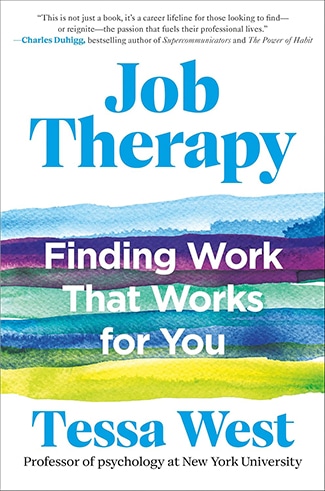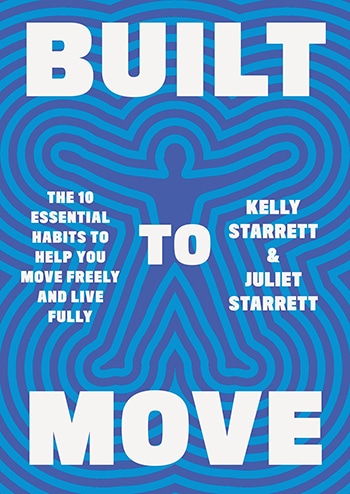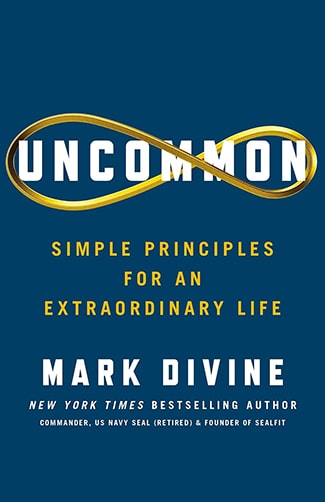Podcast Summary
Discover the secrets to managing anger and avoiding destructive behavior!: Properly managing anger through lifestyle changes, thought reframing, and therapy can help individuals avoid destructive behavior and live happier lives.
Anger is a complex emotion that can lead to destructive behavior if not managed properly. Dr. Chip Tafrate, a clinical psychologist, explains that anger is our built-in threat protective system, a reaction to perceived threats. However, it is important to distinguish anger from aggression, as aggression involves harmful actions whereas anger is a natural emotional response. To effectively manage anger, Dr. Tafrate suggests making lifestyle changes, avoiding triggers, reframing thoughts, and engaging in anger exposure therapy. These strategies help individuals control their anger and prevent it from escalating into damaging situations. Understanding the connection between anger and destructive behavior is crucial, as anger is the emotion most likely to lead people into issues with the criminal justice system. By learning to manage anger, individuals can live happier and more fulfilling lives.
You won't believe what happens when anger takes over!: Anger is a natural response, but it doesn't always lead to aggression. Understanding anger's complexities is vital for managing it and maintaining positive relationships.
Anger is a natural and physiological response that is deeply ingrained in human beings. It is both a physical and mental experience that occurs within the context of one's environment. While anger is often associated with aggression, there is a clear distinction between the two. Anger is primarily an internal response that can be felt without others knowing, while aggression is observable behavior such as throwing things or physically harming someone. It is important to recognize that most people who experience anger do not become aggressive. However, aggression can occur without any underlying anger. The harmful consequences of anger can manifest through verbal behavior such as insults and yelling. Understanding the complexities and potential outcomes of anger is crucial in managing it effectively to avoid negative consequences in relationships and personal well-being.
Discover the surprising ways anger can shape your life!: Anger can be a powerful force for change, but it must be managed wisely to avoid harmful consequences.
Anger can have both positive and negative effects on our lives. Mild to moderate anger can be helpful as it signals that something is wrong and can motivate us to make necessary changes. It can also drive social movements and bring about positive transformation. However, when anger becomes too strong, frequent, or long-lasting, it can become destructive. It can damage relationships, derail careers, and lead to impulsive and harmful decisions. It can also have negative impacts on our physical health, such as high blood pressure and heart disease. The advice is to pay attention to the outcomes of our anger and ask ourselves if it is improving or damaging relationships and situations. Anger management is the goal, not the complete elimination of anger, as it is a natural response that can be navigated and controlled effectively.
Discover the surprising key to managing your anger effectively!: Managing anger requires conscious effort and practice through implementing new behaviors and seeking evidence-based approaches for effective treatment.
Managing anger requires conscious effort and practice. Instead of allowing ourselves to be swept up in anger and engaging in harmful behaviors, we can choose to interrupt the automatic response by asking ourselves where our anger is leading us. By implementing new and unfamiliar behaviors, such as patience, kindness, and compassion, we can work towards finding solutions that do not exacerbate the problem. It is important to recognize that anger treatment can be effective, but it is crucial to seek out evidence-based approaches and avoid interventions that can actually make our lives worse, such as venting and catharsis. By pushing against our emotional tendencies and actively working to manage anger, we can make positive improvements in this area of our lives.
Why venting anger actually makes it worse over time: Catharsis, or venting anger, may give temporary satisfaction but actually reinforces the emotion and worsens anger over time. Understanding anger patterns and finding healthier ways to manage it is important.
Catharsis, the idea of venting anger to release pressure, is not an effective way to manage anger. While it may feel satisfying in the moment, acting out in anger actually reinforces the emotion and makes it worse over time. Rather than giving in to the urge to vent, it is important to push back against this tendency and find alternative ways to address and manage anger. Understanding one's own anger patterns is a crucial step in this process. By analyzing the triggers, thoughts, sensations, urges, behaviors, and outcomes associated with anger episodes, individuals can gain insight into their anger experiences and work towards healthier responses. It is through this self-reflection that one can begin to make positive changes and improve their anger management skills.
Discover the Surprising Building Blocks Behind Your Angry Outbursts!: Understanding the triggers, thought patterns, behaviors, and lifestyle factors can help effectively manage and reduce anger episodes in your life. Cut back on alcohol, address multiple problems, and create a positive environment to minimize negative reactions.
Understanding the building blocks of anger episodes can guide us in effectively managing anger. By identifying the triggering events, our thought patterns, and our behaviors during angry moments, we can intervene and make changes. Lifestyle interventions such as proper nutrition, exercise, and sufficient sleep can play a crucial role in reducing the likelihood of anger episodes. Environmental factors such as unpleasant noises and smells should also be considered. Alcohol misuse is closely linked to anger, as it disinhibits us and leads to maladaptive anger behaviors. Therefore, cutting back on alcohol consumption can significantly reduce anger episodes. It is important to address multiple problems and lifestyle issues to create an environment where negative reactions are less likely to occur.
Discover how to control your anger and stop destructive behavior!: It is crucial to find healthy ways to manage and reduce anger, such as self-care, conflict resolution, and identifying triggers, while being mindful not to worsen the situation through avoidance.
Anger is a common emotion experienced by both men and women, and it can lead to substance misuse and destructive behavior. It is important to find healthy ways to manage and reduce anger, both through lifestyle choices and interventions. Taking care of oneself, such as getting enough sleep and eating well, can help regulate anger. Learning to let go of small conflicts and choosing which battles are worth engaging in can also prevent unnecessary anger. Sometimes, avoiding triggers or situations that consistently lead to anger can be beneficial. However, it is important to use judgment to determine when avoidance may worsen the problem.
Discover the secret to taming your anger and regaining control.: By being mindful of our anger triggers and thought patterns, challenging negative assumptions, and practicing cognitive interventions, we can effectively manage and reduce anger in our lives.
It is important to be mindful of how we respond to anger triggers and to pay attention to our thought patterns during moments of anger. We have the power to control our reactions and prevent anger from escalating into a raging fire. By examining our inner thoughts and beliefs, we can challenge negative assumptions and replace them with more rational and level-headed perspectives. It is also crucial to differentiate between minor inconveniences and major setbacks in life, and not to jump to negative conclusions about the intentions of others. By practicing cognitive interventions and changing our internal dialogue, we can effectively manage and reduce anger in our lives.
Discover the secret to managing anger and finding solutions!: Challenging negative thoughts and practicing forgiveness can reduce anger and improve interactions, leading to more positive relationships.
Our mindset and thought patterns play a crucial role in managing anger and frustration. When we constantly "awfulize" and exaggerate minor setbacks, we fuel our anger and make it harder to find solutions to our problems. Challenging and reframing these negative thoughts, with the help of a therapist if needed, can shift our perspective and reduce our anger. Additionally, practicing forgiveness and considering alternative explanations for the actions of others can help us let go of anger and improve our interactions. By giving people the benefit of the doubt and not assuming the worst, particularly in digital communication where intentions may be unclear, we can avoid unnecessary conflicts and cultivate more positive relationships.
Discover the secrets to managing anger and finding inner peace!: Different therapies can help manage anger by challenging thought patterns and aligning actions with values. It's important to find the approach that suits you and explore various interventions for better outcomes.
There are various approaches to managing anger, such as cognitive behavioral therapy and acceptance and commitment therapy. These therapies aim to help individuals challenge their thought patterns and align their actions with their values. The focus is not on eliminating or changing thoughts and feelings, but rather accepting them and behaving in a productive way. It is important to understand that what works for one person may not work for another, so it is crucial to experiment and find the approach that best suits you. Additionally, there are a wide range of interventions available for managing anger, and exploring various options can lead to better outcomes.
Discover how exposure therapy can help control anger!: Exposure therapy, similar to overcoming fears and anxieties, can be used to manage anger by gradually exposing oneself to anger-provoking situations, practicing coping techniques, and transferring skills to real-life scenarios. Seek professional help if needed.
Exposure therapy can be a helpful technique for reducing anger and improving effectiveness. Similar to how exposure therapy is used to overcome fears and anxieties, it can also be applied to anger management. By gradually exposing oneself to anger-provoking situations, individuals can extinguish their fear and anger. This involves simulating and practicing anger scenarios, using relaxation techniques, and developing coping statements. The ultimate goal is to transfer these skills to real-life situations, where individuals can handle themselves with less anger. It is important to stay calm, avoid making angry statements or gestures, and exit gracefully. Starting small and seeking professional guidance if necessary is crucial. By practicing and minimizing the intensity of anger, individuals can improve their overall response to anger-inducing situations.
Learn how to master your anger and live a happier life!: Managing anger is a skill that can be learned and practicing strategies for controlling anger can lead to a happier and more effective life.
Managing emotions, particularly anger, is a skill that can be learned and practiced. Chip Tafrate and Brett McKay discuss how Aristotle's teachings from 2500 years ago still hold true today when it comes to anger management. They emphasize that anger itself is not inherently good or bad, but rather how it is expressed and managed determines its impact. Anger can become maladaptive and destructive when it is expressed too much or inappropriately. To live a truly effective and happier life, one must master their own anger reactions. Both Tafrate and McKay provide resources such as the book "Anger Management for Everyone" and an online Udemy program to help individuals learn proven strategies for controlling anger.












